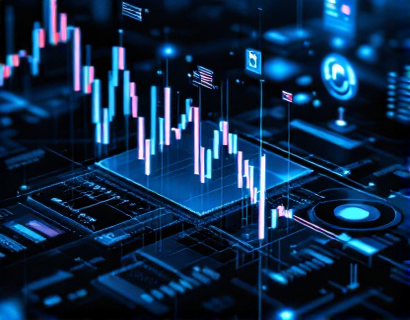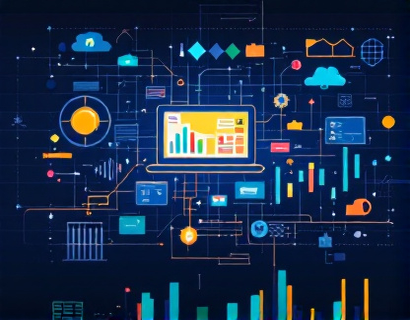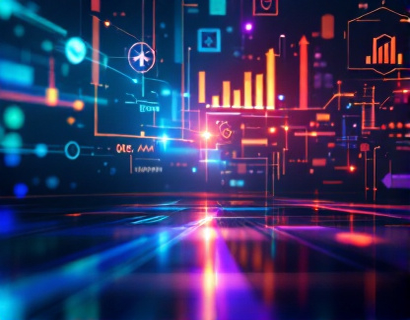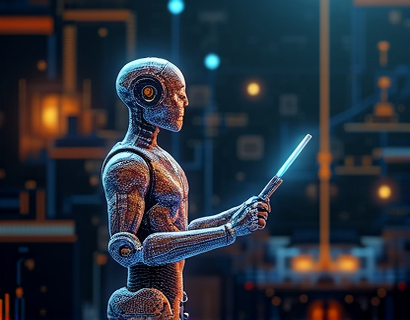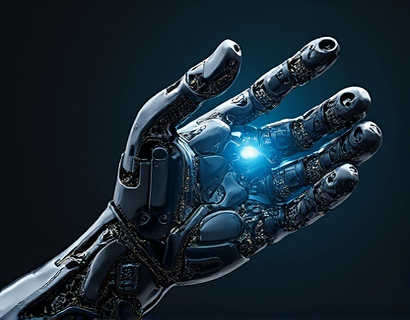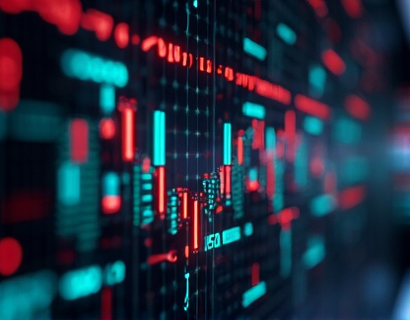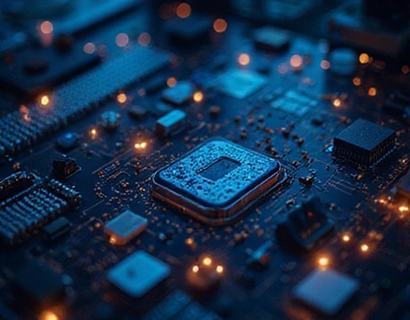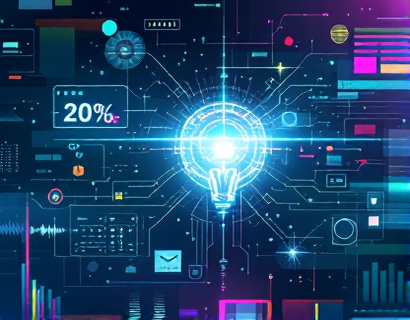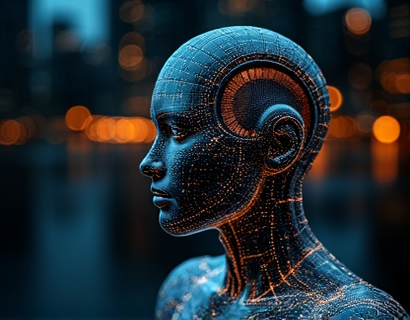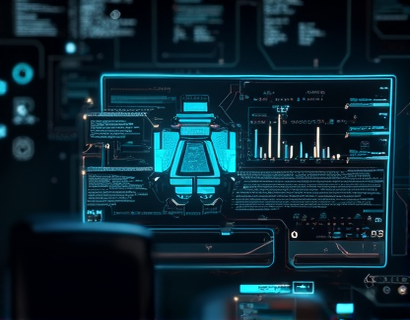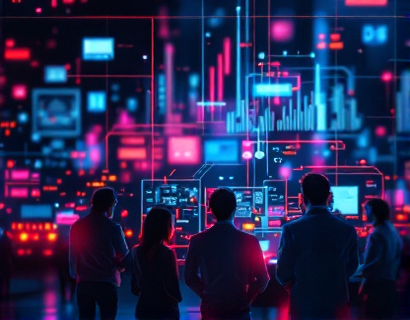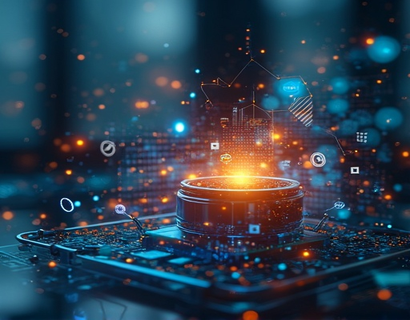Unlocking the Future: How AI and Crypto Are Revolutionizing Finance and Technology
The intersection of artificial intelligence (AI) and cryptocurrency is ushering in a new era of innovation in finance and technology. This convergence is not just a trend but a fundamental shift that is redefining how we interact with digital services and financial systems. The potential of this union is vast, offering enhanced security, efficiency, and user experiences that were once the realm of science fiction.
The Rise of AI in Finance
Artificial intelligence has been transforming the financial sector for years, but its impact is becoming more pronounced with the integration of blockchain and cryptocurrency. AI algorithms can process vast amounts of data at speeds unattainable by humans, identifying patterns and making predictions with high accuracy. In finance, this means more precise risk assessments, personalized financial advice, and automated trading strategies.
One of the most significant applications of AI in finance is in fraud detection. Traditional methods rely on rule-based systems that can be easily bypassed by sophisticated scammers. AI, however, can learn from past fraud attempts and adapt in real-time, detecting anomalies and preventing fraudulent transactions before they occur. This not only protects financial institutions but also builds trust with consumers.
Enhanced Security Through Blockchain
Blockchain technology, the backbone of cryptocurrency, offers a decentralized and immutable ledger that enhances security in financial transactions. Each transaction is recorded in a block that is linked to the previous one, forming a chain that is nearly impossible to alter without consensus from the network. This makes blockchain an ideal solution for preventing double-spending and ensuring the integrity of financial data.
When combined with AI, blockchain can achieve even higher levels of security. AI can monitor the blockchain for unusual activity, predict potential security threats, and automate responses to mitigate risks. This synergy between AI and blockchain creates a robust defense mechanism against cyber threats, a critical concern in the digital age.
Smart Contracts: Automating Agreements
Smart contracts are self-executing contracts with the terms of the agreement directly written into code. They run on blockchain networks and automatically enforce and execute the terms when predefined conditions are met. AI enhances smart contracts by providing the intelligence to interpret complex conditions and execute actions with precision.
In finance, smart contracts can streamline processes such as loan agreements, insurance claims, and supply chain transactions. They reduce the need for intermediaries, lower transaction costs, and increase efficiency. For instance, in the insurance industry, AI can assess claims data and trigger payouts automatically when conditions are met, providing faster and more reliable service to customers.
Personalized Financial Services
The combination of AI and cryptocurrency enables the creation of highly personalized financial services. AI algorithms can analyze a user's financial behavior, preferences, and goals to offer tailored investment strategies, budgeting advice, and credit offerings. This level of personalization was previously only possible through extensive human analysis, which is both time-consuming and costly.
Cryptocurrency adds another layer of flexibility, allowing for instant global transactions and access to a wide range of financial instruments. Users can invest in decentralized finance (DeFi) platforms, participate in initial coin offerings (ICOs), and use stablecoins for stable value transactions, all facilitated by AI-driven tools that simplify the process and enhance user experience.
Decentralized Finance (DeFi)
Decentralized finance, or DeFi, is a movement that aims to create financial systems without central authorities, using blockchain and smart contracts. AI plays a crucial role in DeFi by optimizing protocols, predicting market trends, and enhancing user interfaces. DeFi platforms offer a range of services including lending, borrowing, trading, and yield farming, all accessible through decentralized applications (dApps).
AI-driven analytics in DeFi can help users make informed decisions by providing insights into market conditions, risk levels, and potential returns. This democratizes access to sophisticated financial tools, allowing individuals and small businesses to participate in the global economy without the need for traditional banking infrastructure.
Cross-Border Payments and Remittances
Traditional cross-border payments are slow, expensive, and often fraught with bureaucratic hurdles. The integration of AI and cryptocurrency is revolutionizing this process by enabling fast, secure, and cost-effective transactions. Blockchain ensures transparency and reduces the risk of fraud, while AI optimizes routing and settlement processes.
Cryptocurrency, with its borderless nature, allows for seamless transfers between countries. AI can predict exchange rate fluctuations and optimize transaction timings to minimize costs. This is particularly beneficial for remittances, where millions of people worldwide send money to family and friends in different countries, often facing high fees and long processing times.
Supply Chain Transparency
The supply chain industry stands to gain significantly from the combination of AI and blockchain. AI can track and analyze data from various points in the supply chain, identifying bottlenecks, predicting demand, and optimizing logistics. Blockchain provides an immutable record of each transaction, ensuring transparency and traceability.
For example, in the food industry, blockchain can track the origin and journey of products from farm to store, ensuring food safety and authenticity. AI can analyze this data to predict and prevent issues such as contamination or spoilage, enhancing overall efficiency and consumer trust.
Challenges and Considerations
Despite the numerous benefits, the integration of AI and cryptocurrency in finance and technology is not without challenges. Regulatory uncertainty remains a significant barrier, as governments worldwide are still grappling with how to oversee these new technologies. Compliance with existing financial regulations and the development of new frameworks are essential to ensure the responsible growth of this sector.
Another consideration is the environmental impact of cryptocurrency mining, particularly for energy-intensive proof-of-work (PoW) blockchains. The shift towards more sustainable consensus mechanisms, such as proof-of-stake (PoS), is gaining momentum. AI can also play a role in optimizing energy usage and developing greener blockchain solutions.
The Future Landscape
The future of finance and technology is increasingly intertwined with AI and cryptocurrency. As these technologies mature, we can expect even more innovative applications and broader adoption. The potential for creating inclusive, efficient, and secure financial systems is immense, offering opportunities for individuals and businesses alike.
For those interested in leveraging these advancements, platforms like the one described earlier are at the forefront, providing tools and services that harness the power of AI and blockchain. These platforms aim to simplify the complex world of cryptocurrency and AI, making it accessible and beneficial for a wider audience.
In conclusion, the convergence of AI and cryptocurrency is not just a technological evolution but a revolution that is reshaping the financial landscape. By embracing these innovations, we can unlock a future where finance is more transparent, efficient, and empowering for all.




